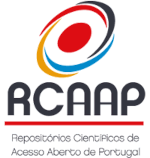Influence of digital games on the short-term memory of university students
DOI:
https://doi.org/10.62741/ahrj.v2iSuppl..88Keywords:
Short-term memory, Digital games, Higher education students, Digit memory, SuperlabAbstract
Introduction: Multiple recent studies, namely laboratory-based systematic review articles and applied or experimental research, have indicated the association, particularly in young or adult users, between results in measurements of short-term memory with the frequency and intensity of playing games using various forms of electronic support, globally known as digital games.
Objectives: ...
Methodology: An experimental study was applied to the assessment of short-term memory among university students, based on a comparative analysis between two groups, one of intensive users of digital games, and the other not, statistically comparing the two results. The starting hypothesis holds that it is possible to statistically demonstrate that subjects who intensely use digital games present, when tested in a laboratory context, higher results in short-term memory tests. A self-assessment scale for the use of digital games was used to define the experimental groups and, for data production, a subtest from the Wechsler Intelligence Scale for Adults measured for the Portuguese population, the digit span (or digit memory), experimentally adapted from a program produced using stimulus presentation software, SuperLab6. It was developed with 164 university students, with identical gender distribution, from a higher education institution.
Results: The results of the student t test indicated the presence of statistically significant differences between the groups. There are significant differences between the groups regarding short-term memory according to the DOD.
Discussion: ...
Conclusions: The potential applicability of the short-term memory assessment program to different groups and objectives is concluded, particularly in an experimental context, and suggests its possible adoption as a Psychology tool in the areas of cognition.
References
NA
Downloads
Published
Issue
Section
License
Copyright (c) 2025 Athena Health & Research Journal

This work is licensed under a Creative Commons Attribution-NonCommercial 4.0 International License.
Copyright of published papers is assigned to the Journal, but all content is licensed under the terms of Creative Commons Non-comercial 4.0 International License. Thus users are allowed to read, download, copy, distribute, print, search, or link to the full texts of the articles, or use them for any other lawful purpose, without asking prior permission from the publisher or the author. This is in accordance with the BOAI definition of open access.














